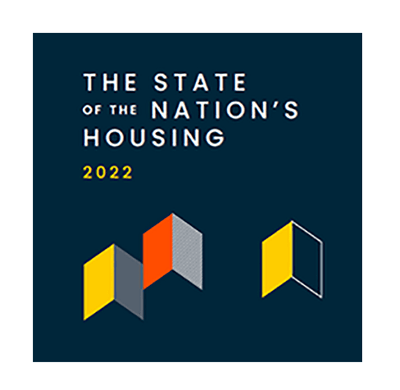
Record-Breaking Home Prices, Rents Likely to Cool

After a record-shattering 2021, the housing market has reached an inflection point, according to the Harvard Joint Center for Housing Studies, Cambridge, Mass.
In its annual The State of the Nation’s Housing report, the Joint Center said higher interest rates have taken some heat out of the homebuying market and the large number of apartments under construction should bring some relief on the rental side. But it noted that for lower-income households and households of color, the pressure of high housing costs is unlikely to relent.
“The costs of housing continue to climb,” the report said. Home price appreciation nationwide hit 20.6 percent in March, marking the largest jump in three decades, and rents increased 12 percent in the first quarter.
“Rents for single-family homes rose even faster, pushed up by increasing demand for more living space among households able to work remotely,” said Daniel McCue, Senior Research Associate at the Joint Center. “Adding to the pressure, investors moved aggressively into the single-family market over the past year, buying up moderately priced homes either to convert to rental or upgrade for resale.”
Surprisingly strong household growth throughout the pandemic has contributed to the sharp rise in housing costs, the report said. Much of the jump was among Millennials: an uptick in new household formations among adults under 45 tacked on an additional 400,000 annually to household growth over the past five years.
“Meanwhile, the number of older-adult households is also growing rapidly with the aging of the baby boomers, exacerbating the need to adapt the housing stock and make it more accessible,” the report said. (The Mortgage Bankers Association’s Research Institute for Housing America released new research this week on this subject. The study, Who Will Buy the Baby Boomers’ Homes When They Leave Them, analyzes data on housing, demographics and mortality to examine the impact the aging and eventual death of baby boomers may have on future demand and the supply of homes for sale listed by older Americans.)
The State of the Nation’s Housing said housing demand is set to decline dramatically over the long term. “Population growth, the primary driver of household growth, is now at a 100-year low as birth rates have fallen, death rates have risen and immigration has slowed to a trickle,” the report said.
